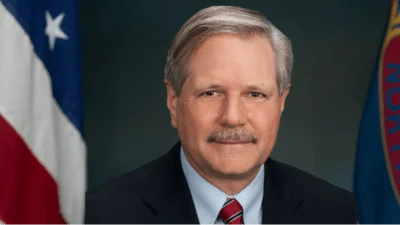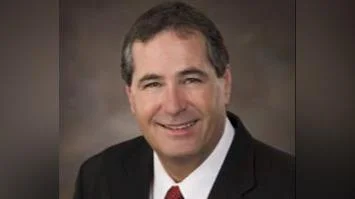Chief Judge James E. Boasberg, U.S. District Court - District of Columbia | dcd.uscourts.gov
Chief Judge James E. Boasberg, U.S. District Court - District of Columbia | dcd.uscourts.gov
On September 9, 2016, U.S. District Judge James E. Boasberg issued a key ruling in the contentious Dakota Access Pipeline case, denying the Standing Rock Sioux Tribe’s request for a preliminary injunction to halt construction.
The Tribe argued that the U.S. Army Corps of Engineers violated the National Historic Preservation Act (NHPA) by not adequately consulting with them about the pipeline.
The court acknowledged the longstanding conflict between the federal government and Native American tribes, stating, "Since the founding of this nation, the United States’ relationship with the Indian tribes has been contentious and tragic."
Judge Boasberg, however, found that the Army Corps had likely complied with its obligations under the NHPA.
The memorandum said the Tribe had not shown that pipeline construction would cause irreparable harm to historic sites that would justify stopping the project.
"The Tribe has not shown it will suffer injury that would be prevented by any injunction the Court could issue," wrote the judge, denying the motion to halt construction.
"Aware of the indignities visited upon the Tribe over the last centuries, the Court scrutinizes the permitting process here with particular care," wrote Boasberg. "Having done so, the Court must nonetheless conclude that the Tribe has not demonstrated that an injunction is warranted here."
"The Court, therefore, will issue a contemporaneous Order denying the Plaintiffs’ Motion for Preliminary Injunction," wrote the judge.
The judge’s ruling allowed Energy Transfer Partners, the company behind the reported $3.8 billion, 1,172-mile pipeline, to continue construction, and came in the midst of protests over the pipeline’s construction.
The protests, which occurred in 2016 and 2017, aimed to halt the construction of the reported $3.8 billion pipeline and “drew thousands of people to camp out” in Morton County, the Associated Press reported.
The protests resulted in 761 arrests, according to MPR News. Charges ranged from trespassing to more severe offenses. A significant number of those arrested were from out of state.
California resident and actress Shailene Woodley was arrested in October 2016. Other figures, including actors Mark Ruffalo and Leonardo DiCaprio, participated in the protests but were not arrested.
Certain days of the protests resulted in dozens of arrests, such as February 1, 2017, when 76 people were arrested after Morton County Sheriff’s Department spokesperson Rob Keller said a “rogue group of protesters” had trespassed on private property.
The State of North Dakota is currently suing the federal government to “recoup $38 million it claims it spent policing the protest camps,” Source NM reported.
Attorneys for North Dakota reportedly argued in court records that the protests “resulted from an illegal occupation on federal lands and led to ‘frequent outbreaks of illegal, dangerous, unsanitary, and life-threatening activity on federal, state and private property.’”
North Dakota Special Assistant Attorney General Paul Seby said in court that the aftermath of the protests “required a four-day cleanup of the camp and 600 bins to remove 9.8 million pounds of trash,” according to MPR News.
Former Morton County Commissioner Cody Schulz, who is now the director of the North Dakota Parks and Recreation Department, said in court that, “beyond the drain on law enforcement, the protests caused a range of impacts on Morton County — everything from minor inconveniences like sluggish traffic to damage to private property,” Source NM reported.
Energy Transfer Partners, the owner of the pipeline, has filed a $300 million lawsuit in state court against the environmental activist organization Greenpeace for its role in the protests. The suit says Greenpeace “should be held responsible for trying to disrupt pipeline construction and damage the company’s reputation and finances,” the Associated Press reported.
That lawsuit, and an attempted settlement, led to the recent ouster of Greenpeace’s Executive Director Ebony Twilley Martin, said the former Chief Operating Officer (COO) for Greenpeace.
Willem van Rijn, the group’s COO until April 2024, told E&E News that “Twilley Martin ‘advocated a way in which the organization would settle for a minor amount of money so that we could fight another day,’” and that the “board vehemently disagreed.”
Greenpeace last week launched a fundraising campaign to “raise awareness” of the lawsuit.
The lawsuit filed by Energy Transfer Partners in Morton County District Court is currently pending.






 Alerts Sign-up
Alerts Sign-up